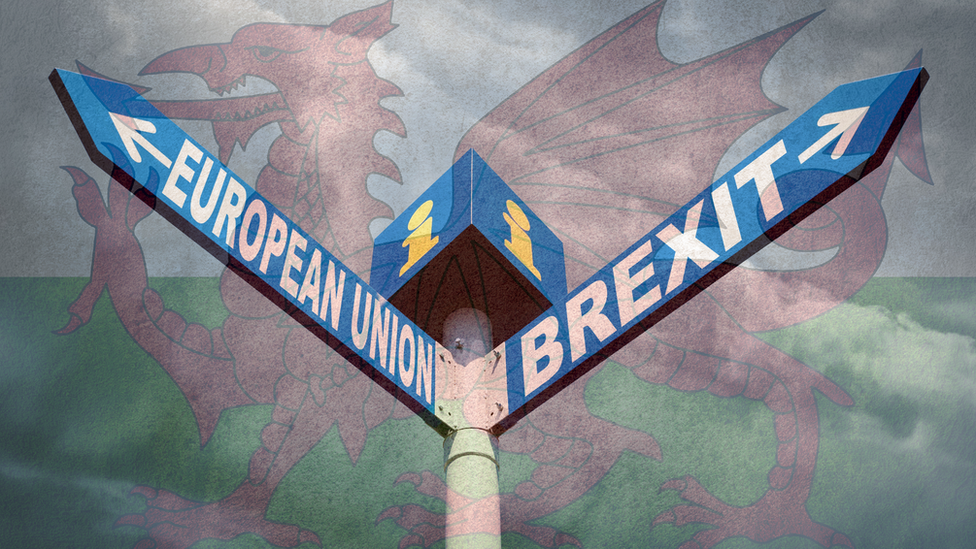Brexit 'holding pattern' for EU laws in Great Repeal Bill
- Published
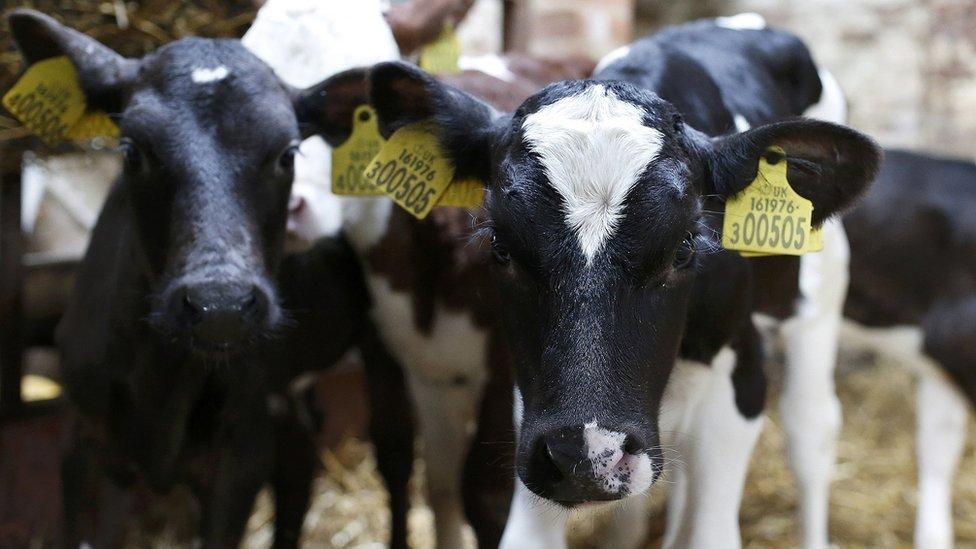
Much of UK farming policy is currently set in Brussels
UK ministers have outlined plans to take control of EU laws immediately after Brexit before decisions are taken on further devolution.
Welsh Secretary Alun Cairns said the Great Repeal Bill would set out a "holding pattern" before negotiations with the nations.
Wales, Scotland and Northern Ireland have been told to expect a "significant increase" in powers after Brexit.
First Minister Carwyn Jones said power in devolved areas should "come to us".
A white paper on the bill said the aim was "to provide the greatest level of legal and administrative certainty upon leaving the EU".
It said the UK Government would replace "the current frameworks provided by EU rules through UK legislation".
'Pro-devolution'
At the same time, there would be "intensive discussions with the devolved administrations to identify where common frameworks need to be retained in the future, what these should be, and where common frameworks covering the UK are not necessary".
The white paper stressed that the UK Government would "work closely with the devolved administrations to deliver an approach that works for the whole and each part of the UK".
Mr Cairns said that as the powers returned to the UK from the EU "we expect that there will be a significant increase in powers to the Welsh Government, the Scottish Government and the Northern Ireland Executive but, of course, there's a process that we need to go through before we get to that".
"There will be a holding pattern until we get our framework of agreement in the negotiations with Europe, and when that's been concluded we can then clearly decide where these powers sit," he said.
"But we hope we're going to be in a position to devolve powers at an early stage in order to demonstrate the pro-devolution approach that we're taking."
Alun Cairns says the UK Government has to go through a process to transfer the powers
First Minister Carwyn Jones rejected the idea of all powers returning from Brussels to go to Westminster even temporarily,
"At the end of the day these are powers that are devolved to Wales, Scotland and Northern Ireland. They come to us," he told BBC Wales.
"Then of course we have a discussion with the four governments to work out a common framework. That's the way of doing it in the 21st Century, not looking back to the way things were in the 19th Century.
"We would be absolutely opposed to any suggestion that the UK Government takes over any of the powers in devolved areas that come back from Brussels. That's not what people voted for at all."
Welsh Conservative leader Andrew RT Davies welcomed the bill as "a once-in-a-generation opportunity to chart a positive new course for the United Kingdom and for the people of Wales".
He called on the first minister to "work positively with the UK Government to ensure that we get a deal which works for everyone".
'Refused to listen'
Plaid Cymru denounced the bill as the "biggest Westminster power grab" since England and Wales were united in 1536.
MP Jonathan Edwards, who sits on the Commons Brexit committee, said: "The document makes it perfectly clear the intention from Westminster to take EU responsibilities relating to areas already devolved to Wales and put them in the hands of Westminster MPs, not our directly elected National Assembly.
"It will make English MPs responsible for devolved Welsh matters for the first time since devolution."
Welsh Liberal Democrat leader Mark Williams said he had "doubts" about the UK Government's commitment to Wales.
"Despite having watched Theresa May drive up and down the M4 to engage with Wales' concerns, she has refused to listen and Wales will bear the brunt of her decisions," he said.
"As Wales loses access to the world's biggest single market, decisions about our economy, our industries, and our environment must be made in Wales for the benefit of the people of Wales."
- Published30 March 2017
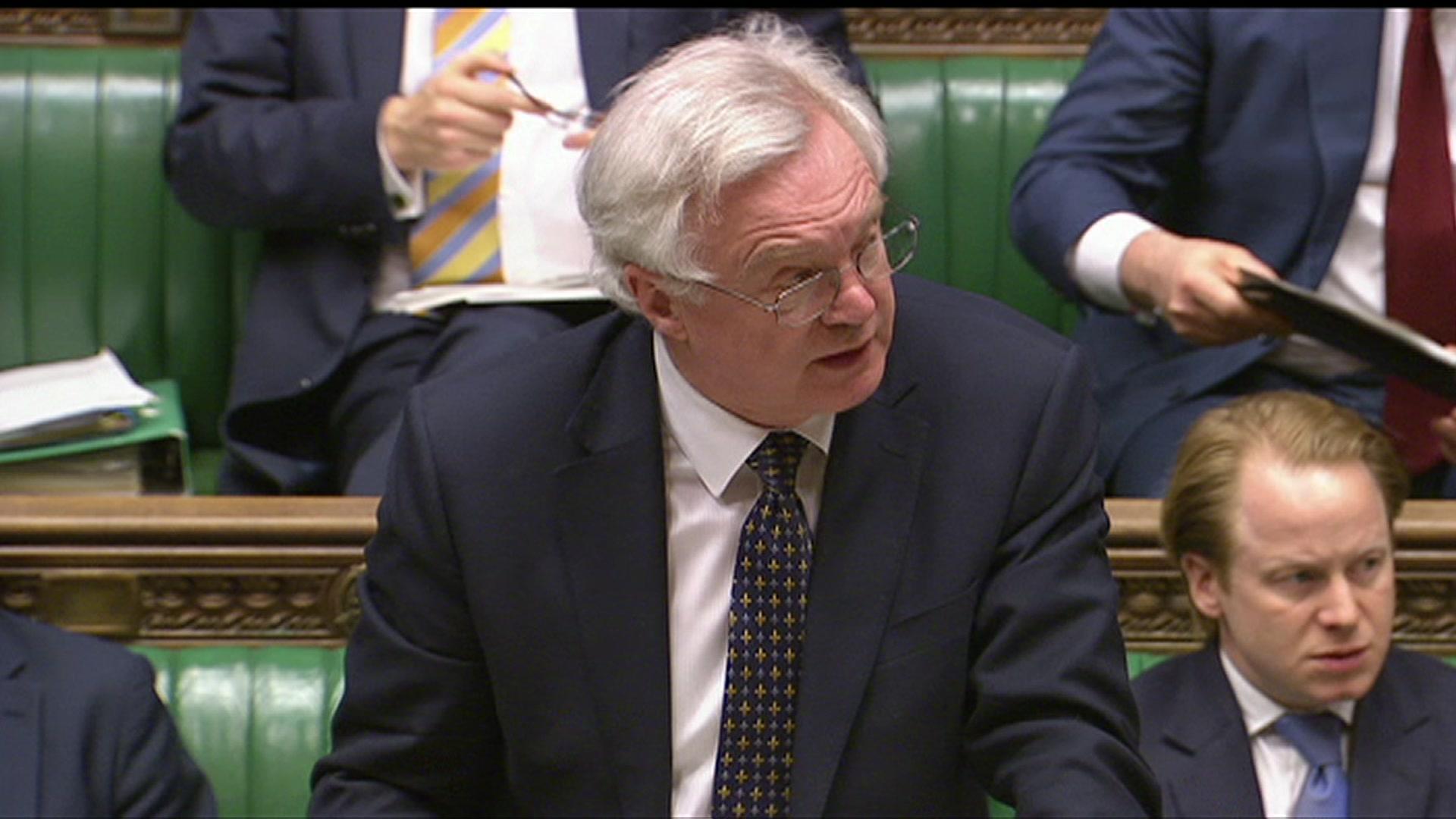
- Published13 November 2017
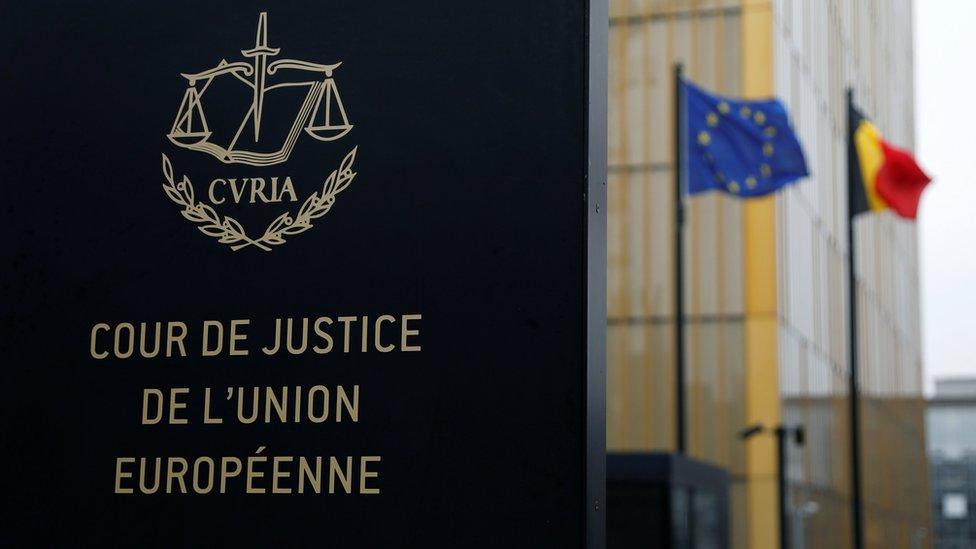
- Published30 March 2017
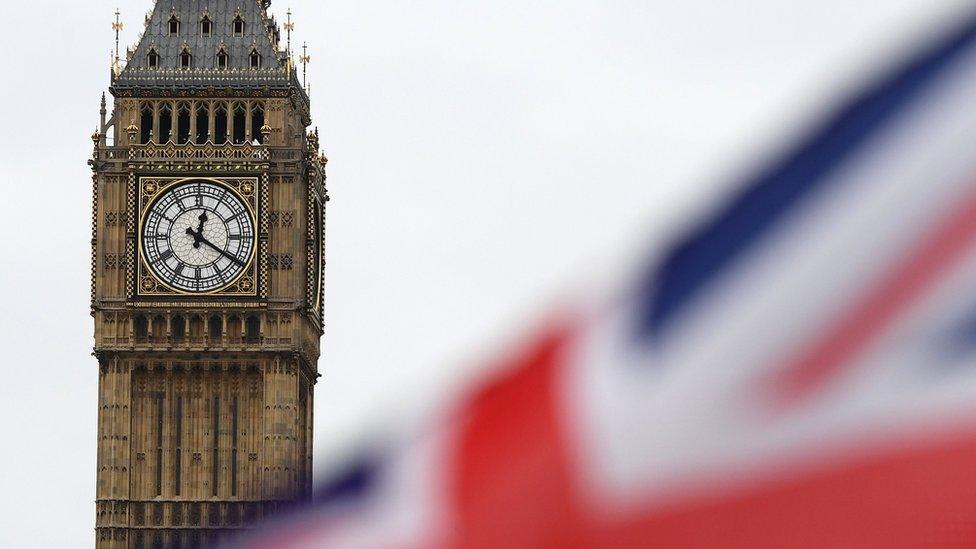
- Published30 March 2017
